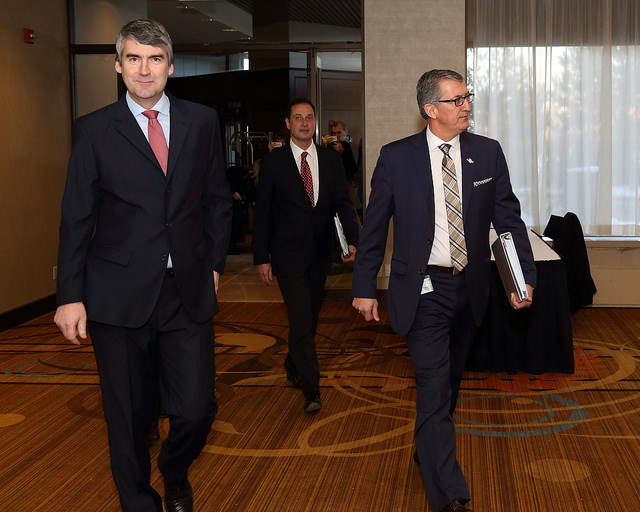Chip in to keep stories like these coming.
There is something rich — and richly ironic — hearing Stephen McNeil fret about the number of voters who didn’t bother to cast ballots in last week’s three provincial byelections.
McNeil, after all, chose the date. He could have called the byelections for late spring when voters might conceivably have been more engaged. Instead, he picked a day in the sunny middle of barbecue/beer/beach/backyard/school break/summer vacation season. Why? Because low voter turnout favours the party in power.
After his government’s recent stumbles — the film tax credit debacle that dominated the spring legislative news cycle, the ongoing drip-drip revelation of yet another, and then another good-doing organization whose future has been jeopardized by his government’s brutish spring budget — the last thing Stephen McNeil wanted was for anyone to pay attention.
That said, we should never dismiss a politician talking sense.
And Stephen McNeil is — almost — talking sense.
“I think people are looking for … ways to deliver elections differently to Nova Scotians,” McNeil suggested after Tuesday’s abysmal voter numbers. Fewer than 50 per cent of eligible voters cast ballots; in Dartmouth South, the figure was just 38 per cent. “People need to feel there is a reason why they’re participating,” McNeil said.
His suggested solution — a preferential ballot in which voters rank order their choices, and the person with the lowest number of votes drops off after each ballot until someone gets a majority — may not be the answer. Experts, in fact, argue preferential balloting does not increase voter turnout whereas some form of proportional representation might.
But the real problem is not with McNeil’s proposed solution. It is with the fact he appears to have no interest in following through on his musings with an honest, open debate about electoral reform.
Talking with reporters last week, he danced away from committing himself to even discussing the issue during the remainder of his first term in office.
That’s too bad.
Given that Nova Scotia faces all sorts of intractable problems — an aging population, out-migration, lack of immigration — that have seemed beyond the power of ordinary politicians to solve, a political leader who at least managed to help make our electoral system more open and involving would leave a legacy worth remembering.
This article first appeared in Stephen Kimber’s Halifax Metro column.
Photo: GovNL Photos/flickr
Chip in to keep stories like these coming.




